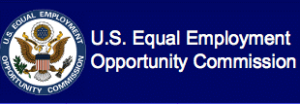 By Gerald L. Maatman, Jr., Jennifer A. Riley, and Gregory Tsonis
By Gerald L. Maatman, Jr., Jennifer A. Riley, and Gregory Tsonis
Duane Morris Takeaways – In Tatum et al. v. Commonwealth of Massachusetts, et al., C.A. No. 0984-CV-00576 (Mass. Sup. Ct. 2022), a Massachusetts state court judge conducted a class trial found that a multiple-choice promotional exam – used for years by various police departments to determine promotions – discriminated against Black and Latino police officers in violation of Massachusetts law. In analyzing the test format, which largely required “rote memorization,” the court opined that the exam failed to adequately test for the relevant job qualifications, as well as the police departments’ use of a ranking system from which candidates were selected for promotion. Ultimately, the court held that the test and ranking system adversely impacted minorities and interfered with their ability to promote to sergeant. The decision demonstrates why employers must be careful to implement policies and processes that do not have a discriminatory impact, even if on their face such policies and practices appear to be neutral.
Case Background
The Commonwealth of Massachusetts’ Human Resource Division (“HRD”), for 50 years, administered a written multiple-choice test to police officers to determine promotion to sergeant. Id. at 4. Officers were ranked almost exclusively according to their scores on the written examination, with individuals at the top of the list being first in line for promotion. In 2007, certain police officers that were subject to the written examination sued the Commonwealth of Massachusetts, and the municipalities in which they worked as police officers. They alleged that the testing process unfairly discriminated against them due to their race and national origin in violation of state and federal law. Id. at 2. The U.S. Court of Appeal for the First Circuit, in an interlocutory appeal, held that state defendants did not qualify as “employers” under Title VII and were entitled to sovereign immunity, thereby resulting in the dismissal of state law claims against the state defendants, which the plaintiffs subsequently re-filed in state court. Id. Though the Massachusetts state court initially dismissed the entire action based on the First Circuit decision, the Massachusetts Supreme Judicial Court remanded several claims, rejected the defense of sovereign immunity, and held that the plaintiffs could be entitled to relief under Massachusetts law prohibiting discrimination. Id. at 3. The state trial court subsequently certified a class of current and former police officers that took the written examination administered by HRD in certain years between 2005 and 2012. Id.
Ultimately, the plaintiffs lost their federal court case after a bench trial, with the federal court finding that the tests had a disparate impact on minorities but that plaintiffs failed to prove that Boston refused to adopt an alternative test with less disparate impact. Id. Though the defendants in the state court case tried to dismiss the entire state court action based on the federal court’s decision, the Massachusetts Appeals Court held that defendants did not show issue preclusion and it authorized the case for trial. Id. at 3-4. The state trial court conducted a two-week bench trial in June and July of 2022 limited to the issue of class-wide liability. Id. at 1.
The State Court’s Findings Of Fact And Conclusions Of Law
The state court found a “massive amount of evidence proving the known and unjustified disparate impact” of HRD’s testing format. Id. at 1. Turning first to the format of the test, the court noted that exam questions “largely test for rote memorization of facts and passages taken directly from textbooks that candidates are asked to study,” and studies commissioned by the HRD over the years to measure the test’s efficacy “did not identify test-taking skills and lack of test-related anxiety as job related.” Id. at 8. The multiple choice portion of the test accounted for 80% of a candidate’s score, with 20% coming from an “Education and Experience” form that each candidate would complete. Id. The court explained that the allocated percentages had no discernible basis, and further disparaged the Education and Experience portion since every officer received 14 of the 20 available points simply for being able to sit for the exam. Id. at 8, 28. Though HRD worked with consultants and subject matter experts to identify the knowledge, skills, and abilities (“KSAs”) important to the job of sergeant, the court noted that the multiple choice questions could only test for 22% to 40% of the relevant KSAs and “did not in fact test for some skills that could have been tested” due to the types of multiple choice questions asked. Id. at 13-15. Rather than focusing on abstract knowledge and memorization of academic textbooks, the court reasoned that questions testing situational judgment, for example, should have been used but were not. Id. at 19.
Given the format of the multiple-choice exam and the types of questions asked, the court observed that a racial disparity existed based on test-taking ability, and not on job qualifications. Noting that “[t]est taking skills are built through practice,” the court adopted the opinions of expert witnesses who testified that “minorities, in general, have had fewer opportunities to participate in our educational system” and differences in average test scores of minorities on tests of cognitive abilities “is due to socioeconomic differences, lack of access to opportunity, and structural racism that exists within the system.” Id. at 26. Ultimately, the court found that “[b]ecause HRD failed to test many important KSAs, measured test-taking skills and memorization, enabled test-related anxiety to affect results and failed to ask questions that focused upon measuring job-related knowledge, its format did not rank candidates for promotional purposes on a basis that was substantially job related.” Id. at 14.
The court also noted that HRD had knowledge of the shortcomings and adverse impact of its tests before and during their use. A 1987 job analysis conducted by a consulting firm recommended that a written test “did not assess many of the attributes needed for the job” and “should account for no more than 40% of the overall score.” Id. at 16. In addition, a study conducted for the Boston Police Department in 2000 advised HRD that an examination should include non-written components, such as an assessment center and performance review system. Id. at 17. The failure to include a performance based assessment technique, the court explained, “injects extraneous influences (such as test-taking ability and temporary memorization skills) into the selection process.” Id. Analysis of the rate of minorities’ promotion to sergeant showed that minorities were promoted at a drastically lower rate than non-minority officers. Id. at 17-19.
The court further determined that Defendants failed to adopt alternatives that would have minimized or eliminated the adverse impact of the tests on minority test-takers. The tests could have contained fewer questions, reducing the “large cognitive loads” and memorization required, in order to reduce the adverse impact. Id. at 45. Rather than using questions that require “rote memorization,” HRD could have used questions that tested situational judgment and were written in plain language instead of “convoluted phrases.” Id. Most notably, banding, in which scores within a range are treated as equal, would have reduced adverse impact because there was no evidence that a police officer that scored one point higher than another was more qualified or would make a better sergeant. Id. at 45-46. Further, HRD adopted 11-point bands in 2009 at the recommendation of a consultant. Id. Finally, the use of other testing methods, such as oral assessments and performance reviews, to assess nonwritten skills “such as leadership, conscientiousness, calmness under pressure, decision-making, interpersonal skills, and oral communication” would have reduced the adverse impact of the tests. Id. at 47.
As a result of the myriad shortcomings of HRD’s written tests, the Court described at length the statistically significant adverse impact of the tests on minority test-takers across all years as compared to white test-takers in the form of lower passing rates, lower overall scores, lower rate of promotion of minority police officers, and increased delay in promotion of minority police officers. Id. at 34-42. Given the adverse impact on scoring and the use of a rank-order list to determine promotions, the court found an adverse impact on the ability and timeliness of minority police officers to achieve promotion to sergeant. Id. at 57. The multiple-choice format of the exam and the ranking of candidates were not job-related, the court also held, given the invalidity of the exam and ranking process. Id. at 61-63. Based upon its factual findings, the court held that “[o]verwhelmingly persuasive evidence proves that HRD interfered with the class members’ rights to consideration for promotion to police sergeant without regard to race or national origin.” Id. at 75.
Implications for Employers
The Tatum decision illustrates why employers with criteria for promotion must be cognizant of how such testing systems may adversely impact classes of individuals in violation of state and federal law. While the testing system used in this case appeared neutral, in practice the test and ranking system resulted in less promotions and increased delay in promotions for minorities. This case demonstrates the potential for costly and years-long class action lawsuits stemming from employer policies and practices in determining promotions. Given these risks, it behooves employers to ensure that neutral policies and practices do not adversely impact groups of individuals.
 By Gerald L. Maatman, Jr., Jennifer A. Riley, and Alex W. Karasik
By Gerald L. Maatman, Jr., Jennifer A. Riley, and Alex W. Karasik




 By: Gerald L. Maatman, Jr., Jennifer A. Riley, and Alex W. Karasik
By: Gerald L. Maatman, Jr., Jennifer A. Riley, and Alex W. Karasik


 By: Gerald L. Maatman, Jr., Jennifer A. Riley, and Rebecca S. Bjork
By: Gerald L. Maatman, Jr., Jennifer A. Riley, and Rebecca S. Bjork